IRISH REBELS ESCAPE! -
Michael Harrington, James Wilson, (another source says McNally but seems to be incorrect), Martin Hogan, Thomas Darragh, Thomas Hassett and Robert Cranston were Irish patriots held in Fremantle prison as political prisoners. (at least according to them and their supporters.) Like John Boyle O'Reilly, they had been involved in an attempted mutiny and had been sentenced to transportation for life to W.A.
In 1870 many political prisoners who had been civilians at the time of their convictions, had been released, but these men had all been members of the military and their actions were viewed much more seriously.
Their compatriots in America (especially John Devoy who had recruited many of the men for rebellion in the first place) had raised $25,000 with the purpose of rescuing the prisoners and a whaling ship Catalpa was purchased to that end.
Captain Anthony was recruited to take the ship to Australia and rescue the men and he alone of all the ship's crew, knew of the real purpose of the mission until he let the First Mate, Smith, into the plan some time after they sailed. Anthony was a strange choice as he was a protestant, an American and a temperance (anti-alcohol) man.
So as not to arouse suspicion (and to help pay for the cost of the rescue), the Catalpa was fitted out for a whaling voyage and she took several whales during the passage. After calling in at Fayal and Tenerife the ship set sail for Australia.
On the way they chanced to cross paths with the British ship, Ocean Beauty. Captain Anthony went aboard and asked about obtaining better charts of the Australian coastline. The Beauty's Captain was happy to provide charts stating that he had used them when he was Captain of the Hougoumont transporting convicts to Australia. Anthony later realised that by pure chance he had obtained the charts from the very ship used to transport the men he was setting out to rescue. Due to a number of delays the Catalpa was running late but eventually she did arrive in West Australian waters.
The ship arrived off Cape Leeuwin and made its way north to Geographe Bay and then to the small port of Bunbury - 29th March 1876. Here Anthony made contact with a man named John Breslin. Breslin (who was using the name James Collins while in W.A.) had arrived to organise the escape and had been posing as a wealthy investor. Breslin was even entertained by the Governor himself while he waited for the Catalpa to arrive.
It turned out that there were three separate rescue attempts underway at the same time. One originating from America, one from Sydney and one from Ireland. This posed great security risks. British intelligence had got wind of the rescue attempt originating in Dublin. The local authorities in Fremantle dismissed the British warning insisting that no one could escape and survive.
Breslin had a number of men helping him to arrange the escape and some of the conspirators travelled by cart to Rockingham to look for a suitable place for the prisoners to be picked up by a small whale boat from the Catalpa.
A site was found near Cape Peron and a date arranged for the escape. Breslin returned to Fremantle and Anthony to Bunbury. While Anthony had been away his crew had decided to aid in the escape of a ticket-of-leave man who was found stowed away on board. Anthony, fearing this would place the rescue of the Irish prisoners in jeopardy, notified the local authorities who came aboard and arrested the stow away.
Heavy weather set in and realising he could not set sail in time for the rescue, Anthony rushed to the telegraph office only to find if closed due to a public holiday. He managed to locate an operator and convince her to send a telegram to Fremantle and his luck held as there was someone at the other end to receive the message.
A day late, the Catalpa set sail for Rockingham and at around 8pm on Sunday night Anthony and a few hand picked men came ashore to wait for the prisoners arrival. The Catalpa was left outside the three mile limit and therefore outside British jurisdiction.
Meanwhile Breslin and his men had been busy organising clothes, weapons and supplies for the escape. At the appointed time the Irish prisoners simply walked away from their assigned tasks and made their way to a waiting wagon. They had been able to do this so easily because they had known for some time about their impending rescue and had been on their best behaviour. In return they had been granted a measure of greater freedom and were able to get away without complications.
By mid-morning on April 17th 1876 (Easter Monday) the wagon arrived at the rendezvous on the beach and the men were hurriedly taken on board the whaling boat and told to keep down and out of sight. A local who saw the men boarding the boat rode to Fremantle to raise the alarm. Only a short time after they had taken to the water a party of armed police arrived. The escape had been uncovered!
Breslin left the Governor a cheeky note telling him of the escape and the part he (as J. Collins) had played in it.
As the small boat got further out the weather started to deteriorate and by the time the catalpa was sighted a gale was rising and darkness was rapidly approaching. The Catalpa failed to see the whale boat and made for open sea to ride out the storm. Anthony and the escapees were now left to ride out the storm in an open boat for the entire night.
After what seemed ages the winds began to abate sometime before dawn and with the coming of daylight there was relief as the Catalpa could be seen making her way back toward shore.
Suddenly alarm went through the boat crew and prisoners when they sighted the mail steamer Georgette steam out of Fremantle and begin making a search. Luckily they were not spotted as Anthony instructed everyone to get down out of sight.
The Georgette went out to the Catalpa and demanded permission to be allowed to search the ship but Sam Smith refused. The Georgette running low on fuel, sailed on towards Garden Island and returned to Fremantle as the coal began to run out. Now a guard boat full of armed soldiers appeared and spotted the whale boat. At about the same time the Catalpa also saw them and the race was on to see who got there first.
The Catalpa won the race and the men and small boat were taken aboard with only minutes to spare. The Officer commanding the guard boat knew he was beaten and gallantly saluted and called out a greeting.
The wind that had been so strong the night before now deserted the sailing ship and as darkness closed in again her sails hung limp and lifeless.
The next morning the Georgette was seen steaming out again, this time her decks crowded with armed troops and armed with a 12 pound canon. She soon reached the Catalpa and the commander called on the American ship to 'heave to'. Captain Anthony refused and hoisted the American flag. With the breeze freshening the Catalpa now moved off with the Georgette following. A game of cat and mouse went on for an hour or so but finally the pursuit was abandoned and the Irishmen were free at last.
A song about the incident quickly emerged and the lyrics so enraged the police that it was banned under penalty of arrest. The lyrics were:
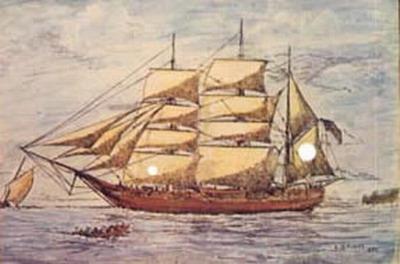
Come all ye police and gaolers
Remember Perth regatta day
Take care of the rest of the Fenians
Or the Yankees will take them away
Now all the Perth boats were a racing
And making short tacks for the spot
But the Yankee she tacked into Fremantle
And took the best prize of the lot
The Georgette, armed with bold warriors
Went out the poor Yanks to arrest
But she hoisted her star spangled banner
Saying you all not board me I guess
Now they've landed safe in the States of America
And there they will be able to cry
Hoist up the green and the shamrock
Hurrah for good old Ireland we die

There is some evidence that the colonial authorities, the Governor and the prison Warden all had prior knowledge of the planned escape but did nothing to prevent it. Perhaps they were glad to be rid of the trouble makers.
A final word on the matter can be left to the London Telegraph newspaper that wrote:
'...the enterprising skipper of the Catalpa has, without meaning it, done us a good turn; he has rid us of an expensive nuisance. The United States are welcome to any number of disloyal, turbulent, plotting conspirators...'
The full fascinating story of this daring rescue can be read in Z.W. Pease's book 'The Catalpa Expedition' or seen on the DVD The Catalpa Rescue by the ABC. On a purely personal note, I think this would make a great movie if it was done properly.
John Devoy, exiled to America for so long, was finally able to return to an independent Ireland in 1922.
Final note: The steamer Georgette was lost off the West Australian coast near Gracetown just 9 months after the Catalpa incident and Grace Bussell became famous for her part in the rescue of the crew and passengers.





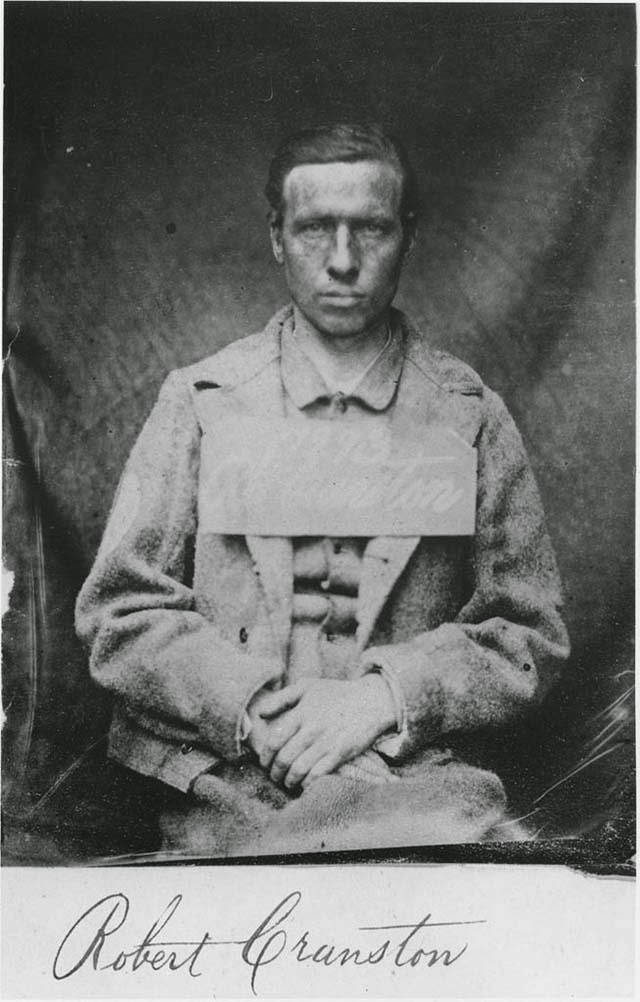
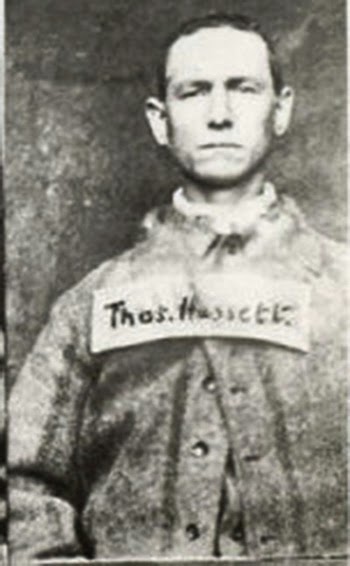
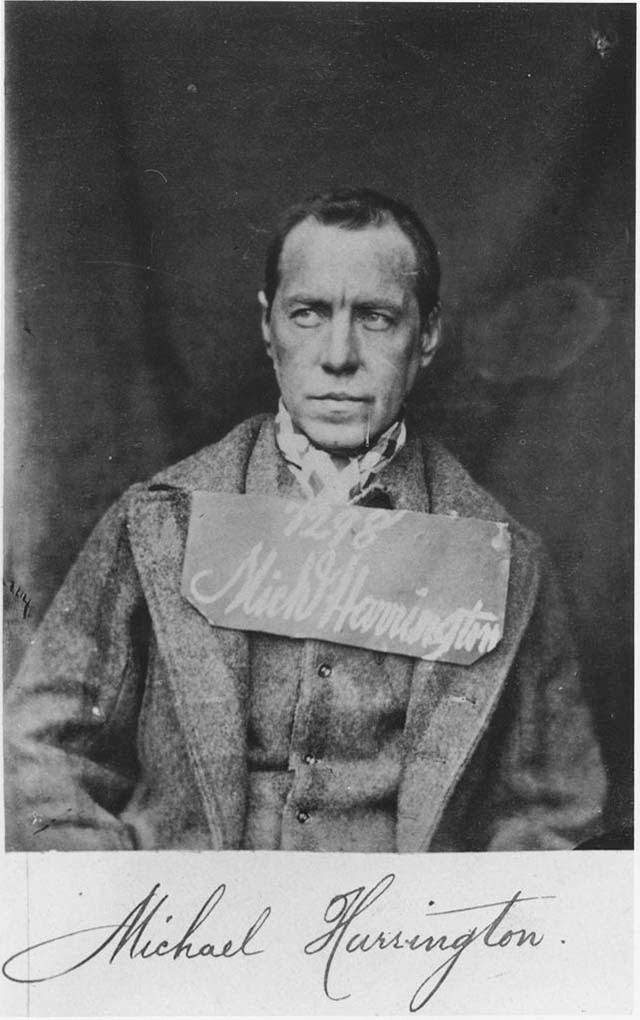
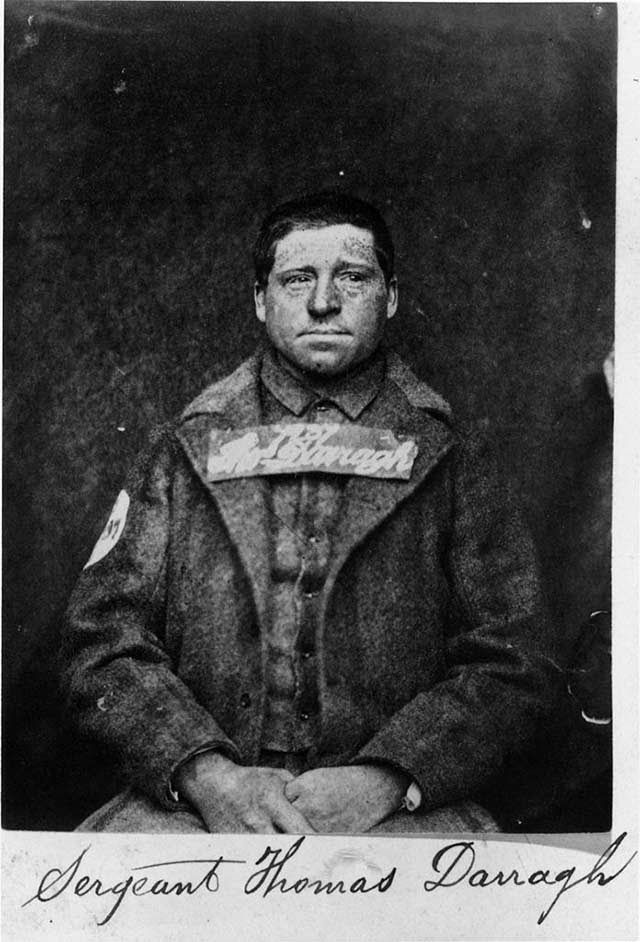
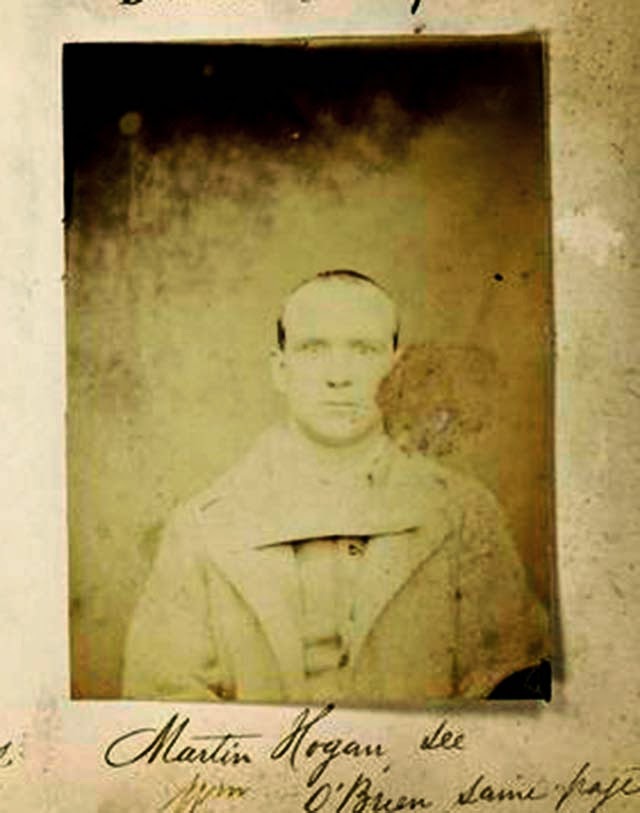
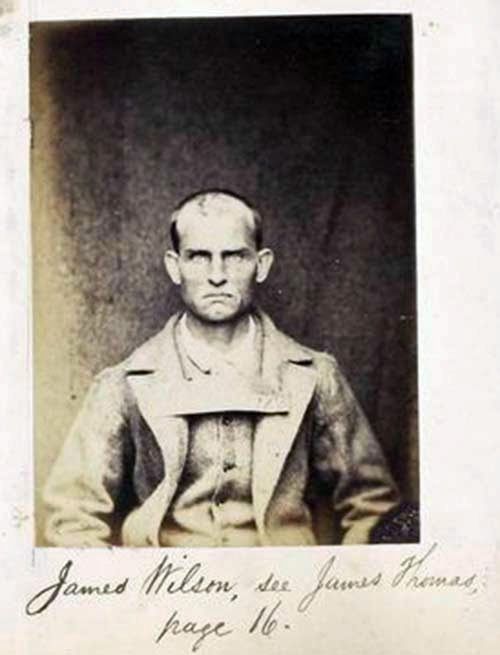
GET YOUR OWN COPY -
If you would like to get a PDF copy of the stories on this website that you can read offline or even print out
and turn into your own hard copy book, you can order through PayPal at the link below. All sales of this book help
us to gather more information and stories for this site and our main website. It is only $3.99 AUD!
|













